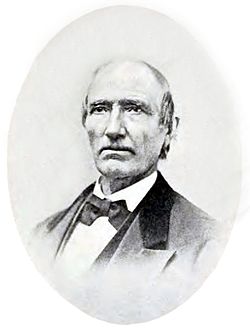October 26, 1846 | |||||||||||||||||
| |||||||||||||||||
 County results Briggs: 50–60% 60–70% 70–80% 80–90% McKnight: 50–60% 60–70% No Data/Votes: | |||||||||||||||||
| |||||||||||||||||
| Elections in Iowa |
|---|
 |
The 1846 Iowa gubernatorial election was held on October 26, 1846, in order to elect the first Governor of Iowa upon Iowa acquiring statehood on December 28, 1846. Democratic nominee Ansel Briggs defeated Whig nominee Thomas McKnight. [1]

